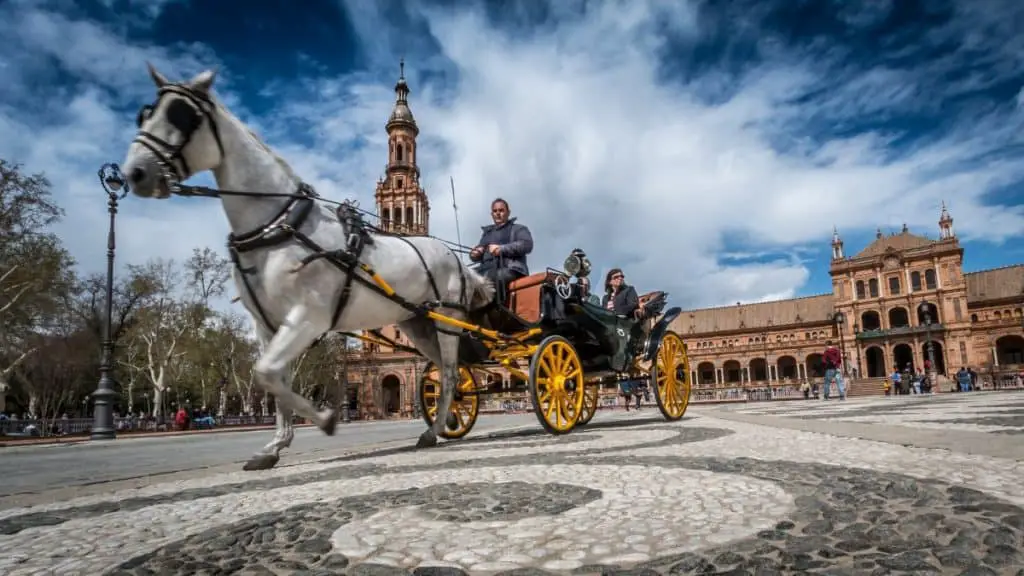When a horse walks, the sound its hooves make is usually referred to as “clopping”. It’s also common to see the words “clip-clop” and “clippity-clop” used to describe this sound. This word is also used to describe the walking sound of any animal with hooves.

What Noises Do Horses Make When They Walk?
“Clop” is usually used to describe the sound of a walking horse, at least in English-speaking countries. The variations of “clip-clop” and “clippity-clop” are also pretty common; “clippity-clop” in particular refers to the sound of a trotting horse as opposed to a walking horse.
Horse hooves only make the “clop” sound on hard surfaces, like concrete or cobblestones. On softer surfaces like mud and grass, horses don’t really make much noise other than perhaps a stomping sound.
Technically, the “clip-clop” sound a horse makes when it walks is because of its horseshoes, not the hooves themselves. An unshod horse walking might make a different sound on the same surface.
What Does “Clop” Mean?
“Clop” refers pretty much exclusively to the sound made by a horse’s hooves. It can be used as either a noun (“the clop of the horses could be heard from the end of the road”) or as a verb (“the horses were clopping along with great determination”).
Is “Clop” A Real Word?
According to the dictionary, “clop” is absolutely a real word. If you’ve just played the word “clop” or “clopping” in Scrabble, rest assured your word is totally valid. The word “clop” first came into existence sometime within the mid-1800s.
“Clop” is a type of word called onomatopoeia, which is a word used to describe a sound where the word somewhat resembles the sound itself. Other examples of onomatopoeia include “sizzle”, “boom”, and “beep”, among others.
